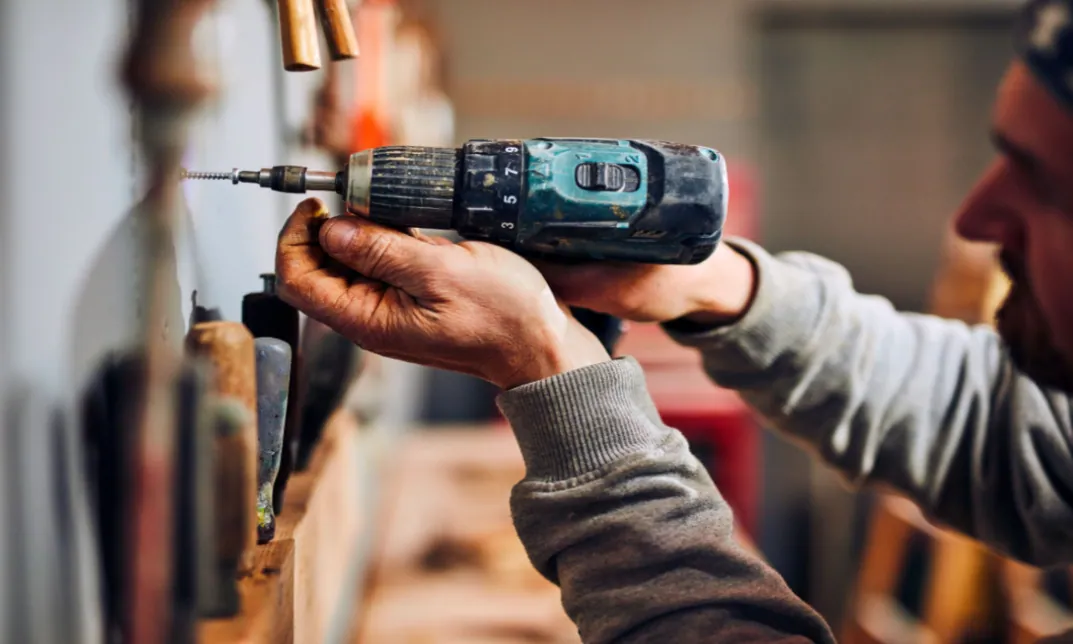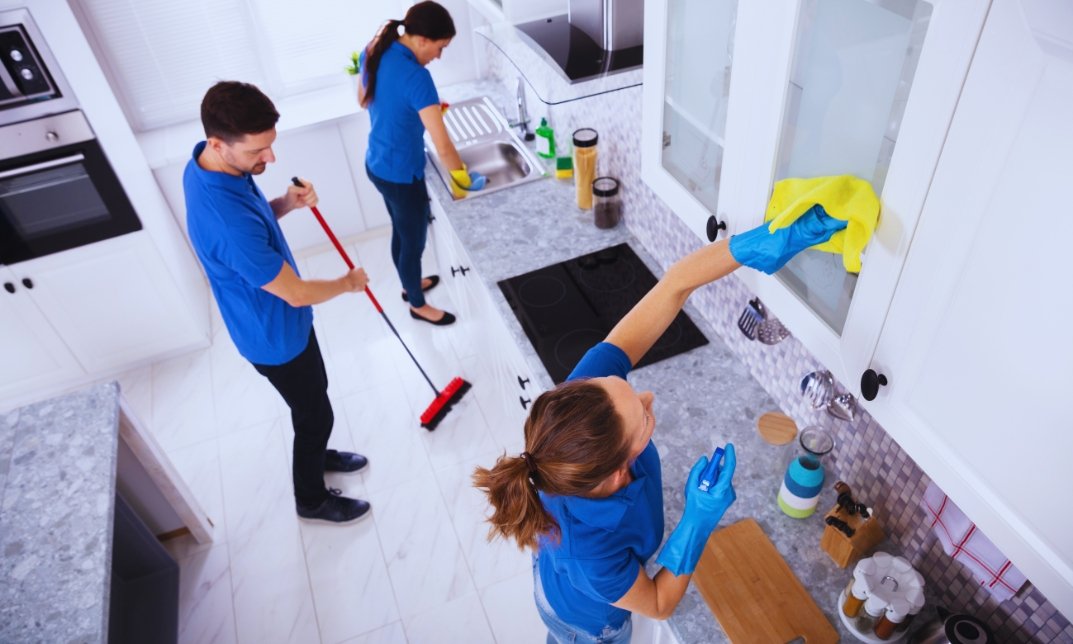No products in the cart.
Handymen possess a unique blend of skills and practical knowledge that makes them indispensable in our everyday lives. The demand for this profession in the UK is beyond imagination. People nowadays are becoming more dependent on handymen. Whether it’s fixing a leaky faucet or repairing a broken fence, handymen do all those jobs. In this blog, we will cover the things that are required for you to become a handyman.
What is a handyperson?
A handyman is a skilled individual who provides maintenance and repair services for residential and sometimes commercial properties. They have a broad knowledge base that includes multiple trades, allowing them to handle a wide range of activities. Unlike professional tradespeople like plumbers or electricians, handymen work on minor jobs that do not require substantial licencing.

Types of Handyman
There are several types of handymen, each specialising in different areas. Here are some common types:
- General Handyman: A general repair handyman can fix a wide variety of things around the house, from leaky faucets to broken windows.
- Carpentry Handyman: Carpenters can build, install, and repair furniture, cabinets, decks, and other wooden structures.
- Plumbing Handyman: Plumbers can install, repair, and maintain plumbing fixtures and pipes.
- Electrical Handyman: Similar to plumbing, there may be limitations on the type of electrical work a handyman can legally do. However, they can often handle tasks like installing light fixtures and ceiling fans.
- Painting Handyman: Painters can paint the interior and exterior of homes and businesses. They can also prepare surfaces for painting, such as by sanding and patching drywall.
- Appliance Repair Handyman: Appliance repairers can fix various appliances, such as refrigerators, ovens, dishwashers, and washing machines.
- Tile and Flooring Handyman: Tilers can install tile floors, countertops, backsplashes, and showers. Moreover, floorers can install, repair, and refinish hardwood floors, laminate floors, tile floors, and vinyl floors.
What does a Handyman do?
Handyman’s tasks are related to maintenance, repair, and preventative measures to keep your house or building in good shape. Here’s a breakdown of their key duties:
Repair Services:
- Fixing leaky faucets, clogged drains, and malfunctioning toilets (basic plumbing)
- Repairing or replacing broken windows, doors, and cabinet hardware
- Patching drywall and fixing minor cracks in walls or ceilings
- Tightening loose door knobs, cabinet fixtures, and other hardware
- Replacing damaged flooring tiles or re-attaching loose floorboards
- Reassembling or fixing broken furniture
- Installing light fixtures, ceiling fans, and other basic electrical components
Maintenance Tasks:
- Cleaning gutters and downspouts
- Weatherproofing windows and doors
- Replacing air filters and smoke detector batteries
- Performing preventative maintenance checks on appliances
- Hanging shelves, pictures, and mirrors
- Assembling furniture and other pre-fabricated items
Additional Services (depending on the handyman’s specialisation):
- Painting interior and exterior walls
- Installing tile flooring, backsplashes, or countertops
- Minor carpentry work, such as building shelves or repairing decks
- Smart home device installation (thermostats, security systems, etc.)
Which Technical Skills are needed to become a Handyman?
Technical skills are very important for working in this sector. Technical skills increase your tendency to work more efficiently. These can be divided into two main categories:
- Trade-Specific Skills: These are skills directly related to the specific tasks a handyman performs. Some of them include:
- Carpentry: Cutting techniques for different types of wood, using joinery methods for secure construction, and applying finishes.
- Plumbing: Understanding different plumbing systems, diagnosing leaks, and repairing or replacing pipes and fixtures (sticking to local licensing requirements).
- Electrical: Knowledge of electrical codes and safety protocols; ability to install basic fixtures and troubleshoot minor electrical problems (within the limitations set by local regulations).
- Drywall Repair: Applying joint compound, sanding techniques for a smooth finish, and texturing drywall for aesthetic purposes.
- Flooring: Installation methods for various flooring materials (tile, laminate, and hardwood) considering subfloor preparation and transitions.
- Painting: Surface preparation techniques (scraping, sanding, priming), proper application of paint using brushes, rollers, and sprayers (if applicable).
- General Maintenance Skills:
- These skills apply to a wide range of handyman tasks and involve using tools effectively and safely. Here is a breakdown of it:
- Tool Usage: Proficiency in using a variety of hand tools (hammers, screwdrivers, levels, and measuring tapes) for different purposes.
- Power Tool Operation: Safe and effective use of power tools (drills, saws, reciprocating saws) following safety protocols and manufacturer instructions.
- Mechanical Aptitude: Understanding basic mechanical principles to troubleshoot problems and find solutions for appliances, fixtures, and other household components.
- Reading Schematics and Blueprints: The ability to interpret basic diagrams and instructions for installing fixtures, appliances, or furniture.
What Tools does a Handyman need?
Handymen use various types of tools to complete various tasks around the home or on the job. Here are some of the tools used by a handyman:
- Claw Hammer
- Tape Measure
- Screwdriver Set
- Pliers (adjustable, needle-nose)
- Utility Knife
- Level
- Safety Glasses
- Cordless Drill
- Fasteners
- Work Gloves
How much does a Handyman Earn in the UK?
The earnings of handymen in the UK can vary widely depending on factors such as location, level of experience, specialisation, and the type of work they undertake. Here’s an overview of the handyman’s jobs and earnings:
- Entry-level Handymen: Entry-level handymen can expect to earn between £18,000 and £25,000 per year.
- Experienced Handyman: Experienced handymen typically earn between £25,000 and £35,000 per year.
- Highly Skilled or Specialist Handyman: Handymen with specialised skills can earn upwards of £35,000 to £45,000 per year or more.
Conclusion
Becoming a handyman is a rewarding career that offers a variety of tasks and the opportunity to help others. You can become a skilled handyman by developing a diverse skill set, gaining practical experience, and taking Wise Campus’s handyperson course. Moreover, you must stay informed about industry trends, prioritise safety, and always strive for customer satisfaction. Only then can you be successful in this field.






